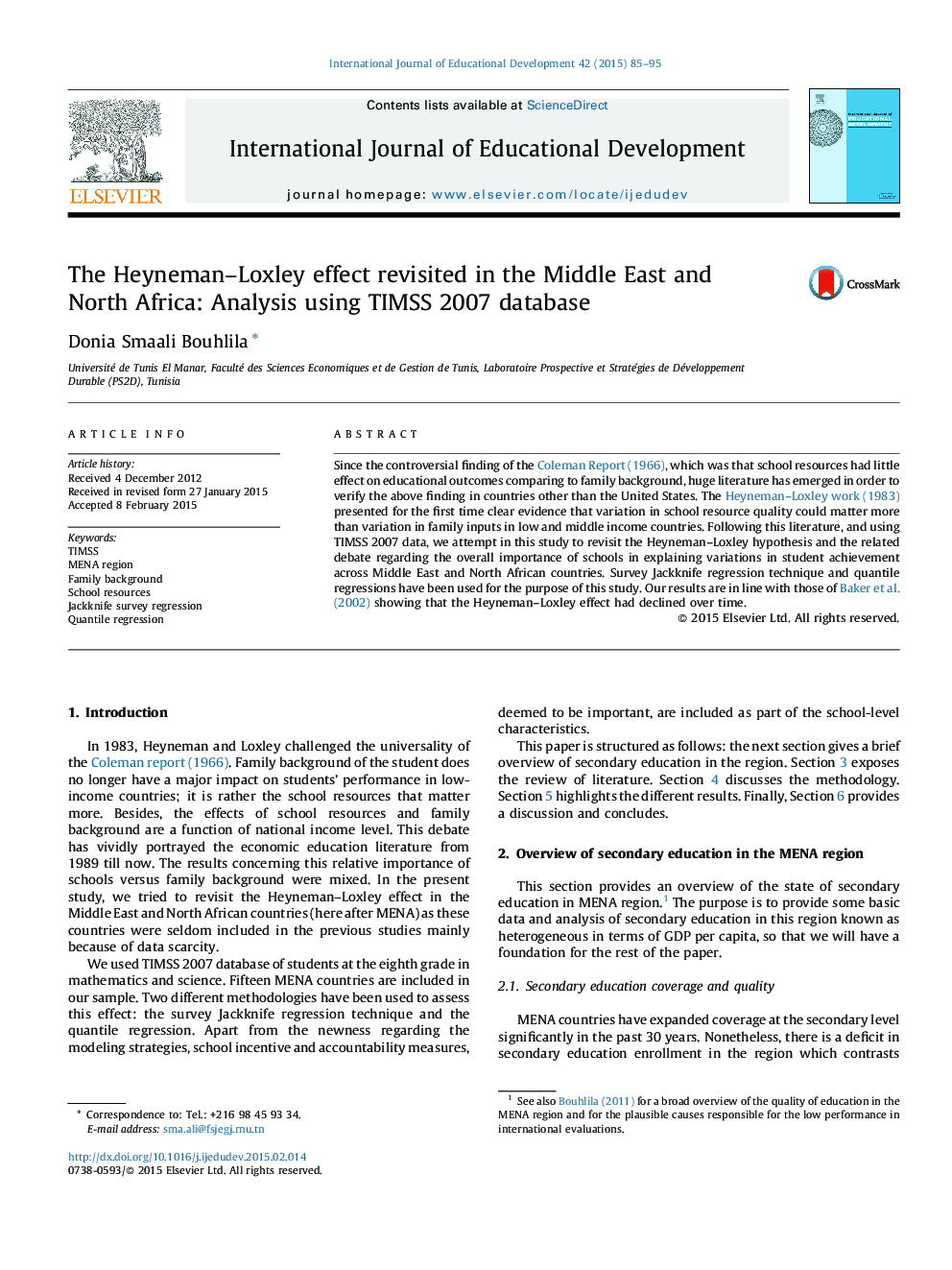| کد مقاله | کد نشریه | سال انتشار | مقاله انگلیسی | نسخه تمام متن |
|---|---|---|---|---|
| 356045 | 1435111 | 2015 | 11 صفحه PDF | دانلود رایگان |
• The Heyneman–Loxley work (1983) presented for the first time clear evidence that variation in school resource quality could matter more than variation in family inputs in low and middle income countries using TIMSS 2007 data, we attempt in this study to revisit the Heyneman–Loxley hypothesis and the related debate regarding the overall importance of schools in explaining variations in student achievement across Middle East and North African countries. Survey Jackknife regression technique and quantile regressions have been used for the purpose of this study. Our results are in line with those of Baker, Goesling, and LeTendre (2002) showing that the Heyneman–Loxley effect had declined over time.
Since the controversial finding of the Coleman Report (1966), which was that school resources had little effect on educational outcomes comparing to family background, huge literature has emerged in order to verify the above finding in countries other than the United States. The Heyneman–Loxley work (1983) presented for the first time clear evidence that variation in school resource quality could matter more than variation in family inputs in low and middle income countries. Following this literature, and using TIMSS 2007 data, we attempt in this study to revisit the Heyneman–Loxley hypothesis and the related debate regarding the overall importance of schools in explaining variations in student achievement across Middle East and North African countries. Survey Jackknife regression technique and quantile regressions have been used for the purpose of this study. Our results are in line with those of Baker et al. (2002) showing that the Heyneman–Loxley effect had declined over time.
Journal: International Journal of Educational Development - Volume 42, May 2015, Pages 85–95
